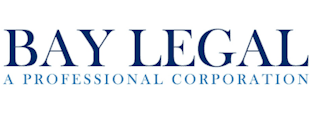Choosing the Ideal State for Your Startup
As tech entrepreneurs about to launch an innovative venture, one of the critical decisions you’ll face is selecting the appropriate legal structure and jurisdiction for your company. Traditionally, Delaware has been a preferred choice for startups, thanks to its comprehensive business laws and robust legal precedent. However, Wyoming is steadily emerging as a strong competitor, offering a cost-effective approach, enhanced privacy protections, and business-friendly laws. With specific concerns regarding privacy, asset protection, and flexibility in management roles, let’s explore whether Delaware or Wyoming may be the better fit for your startup.
Shared Advantages of Delaware and Wyoming Both Delaware and Wyoming have established reputations as business-friendly environments, with pro-business laws, streamlined filing procedures, and relatively low corporate income taxes. Delaware, known as the “home to corporations,” hosts over half of publicly traded companies in the U.S., and roughly 63% of Fortune 500 companies. On the other hand, Wyoming, often referred to as the “Switzerland of Rocky Mountain,” is recognized for its advantageous small business climate.
Cost Considerations Establishing an LLC in either state involves a filing fee – $100 in Wyoming and $90 in Delaware. Wyoming mandates an annual report fee of $50, whereas Delaware does not charge for annual reports but levies an annual tax of $250. Moreover, if your business requires a certificate of good standing, Wyoming provides this free of charge, while Delaware charges $50 for a short form and $175 for a long form.
Privacy and Confidentiality: The Advantage of Establishing an LLC in Wyoming
As the digital world continues to grow, so does the need for privacy and anonymity in our business transactions. A noteworthy location for startups and small businesses that prioritize these factors is Wyoming. This state has a strong commitment to preserving privacy, making it an appealing choice for business owners who value discretion. This article will delve into the distinct privacy benefits that come with forming a Limited Liability Company (LLC) in Wyoming, compared to other popular business-friendly states like Delaware.
Wyoming: A Haven of Privacy
Over recent years, Wyoming has positioned itself as a unique jurisdiction for establishing LLCs, largely due to its robust privacy policies. It’s one of the few states that allow for anonymous ownership of LLCs, meaning the owners’ names aren’t publicly associated with the company. This attribute is highly appealing to entrepreneurs who want to keep their business involvement private, whether for personal, professional, or security reasons.
In addition to anonymous ownership, Wyoming also provides the option to use nominee services. A nominee service involves appointing a third-party individual or entity to act as the visible owner or director on public records. Behind the scenes, however, the actual owner maintains full control and ownership of the company. This approach further bolsters the privacy protections, shielding the real owners’ identities and personal information from the public eye.
Delaware’s Approach to Privacy: A Comparison
Delaware, traditionally a favorite for businesses, provides a stark contrast to Wyoming when it comes to privacy. In Delaware, while LLCs are not required to list member information in the Articles of Organization, the state still mandates companies to have a designated Delaware resident as a Registered Agent. This individual or entity’s information becomes part of the public record, which can lead to some privacy concerns for business owners seeking complete anonymity.
A Registered Agent is a person or entity designated to receive service of process and official documents on behalf of the LLC. This can include legal summonses, state correspondence like annual report notices, and other official notifications. The Registered Agent must have a physical address in Delaware and be available during standard business hours.
To maintain a level of anonymity in Delaware, an LLC may opt to engage a professional Registered Agent service. This professional service acts as the public-facing entity, therefore keeping the LLC members’ information off public records.
Additionally, a Delaware LLC may employ the services of an ‘Incorporator,’ such as a law firm, to file the formation documents with the state. The Incorporator doesn’t have ownership in the LLC but acts on behalf of the forming members to ensure the Articles of Organization are correctly filed, providing an additional layer of privacy.
Why Privacy Matters
In today’s world, privacy matters more than ever. Having the option to keep your business interactions discreet can safeguard against potential threats, like identity theft or unwanted solicitations. Moreover, for entrepreneurs who manage multiple ventures, anonymity allows them to compartmentalize their enterprises, preventing one’s reputation from influencing another unrelated business. Lastly, privacy can also be crucial for strategic moves, allowing companies to invest, pivot, or dissolve without attracting unnecessary attention.
In Conclusion
When it comes to forming an LLC with privacy at the forefront, Wyoming has carved out a unique niche for itself. Its robust commitment to privacy and anonymity stands out against other states like Delaware, making it an attractive choice for entrepreneurs who highly value these aspects. However, it’s essential to remember that while privacy is a significant factor, other considerations like tax structure, legal environment, and business needs should also play into the decision of where to establish your LLC. Always consult with a legal professional or business consultant to ensure you make the best choice for your unique circumstances.
Tax and Other Factors
Tax and Regulatory Factors Wyoming stands out with its lack of corporate and personal income tax, franchise tax, and requirement for share certificates. Both states allow meetings to be held anywhere, and neither requires minimal capital. Conversely, Delaware does impose a corporate income tax, personal income tax, and a franchise tax, and requires share certificates.
The Delaware LLC Advantage Despite its stricter tax regime, Delaware offers a distinctive advantage with the Court of Chancery – a specialized court focusing on business law and corporate disputes, known for its efficiency and expert judges. This, coupled with corporate lawyers well-versed in business law, provides fewer restrictions and greater flexibility in establishing your company and appointing board members.
The Wyoming LLC Advantage On the other hand, Wyoming attracts entrepreneurs with its lower administrative and annual operating costs, and tax exemptions from income, franchise, and corporate taxes. The Corporation Act allows swift establishment of companies, making it an ideal choice for small online ventures and e-commerce businesses.
In conclusion, while Delaware remains a popular choice due to its well-established legal framework and business-friendly courts, Wyoming’s commitment to privacy and tax benefits offer a compelling alternative. The choice between a Delaware and Wyoming LLC depends on your unique situation. It’s crucial to consult with a legal professional to discuss these aspects in detail and make the best decision for your startup.
Please note that this article does not constitute legal advice, and you should consult with a lawyer for advice tailored to your specific circumstances. The information provided is based on general LLC laws and may not apply to your specific situation.
Navigating Crypto Regulations Around the Globe:
Crypto regulations represent the uncharted territories of the financial world. As a blockchain startup, navigating through this global regulatory landscape is crucial for success. From understanding local laws to ensuring compliance and protecting data, each step requires strategic planning and informed decision-making. At BayLegal.com, our team of legal experts specialize in the crypto space, ready to guide your startup through these turbulent regulatory waters. Venture into the world of crypto with confidence and expert counsel by your side
The Role of Smart Contracts in a Blockchain Economy:
A Legal Perspective In the burgeoning blockchain economy, smart contracts play a crucial role. But what exactly are smart contracts, and what implications do they hold from a legal…
Choosing the Right Blockchain for Your Business:
Navigate the world of blockchain technology with confidence and make the right choice for your business. Whether you’re considering Bitcoin, Ethereum, Ripple, or Hyperledger Fabric, each blockchain platform offers unique capabilities, from smart contracts to fast transactions. Your choice should align with your business needs for optimal benefits. For strategic guidance in leveraging blockchain technology, contact the experts at BayLegal.com. Blockchain technology holds immense potential – unlock it wisely with the right blockchain platform for your business.
A Comprehensive Legal Guide to Safeguarding Your Crypto Digital Assets:
A Legal Guide to Protecting Your Crypto Assets In the dynamic, fast-paced world of blockchain technology and cryptocurrencies, digital assets are rapidly emerging as a potent form of wealth.…
Slicing Pie: A Fair and Flexible Approach to Startups Equity Allocation
Navigating the Slicing Pie Model: An Agile Equity Allocation Strategy for Startups As an attorney with a keen interest in entrepreneurship and venture capital, I’ve had a firsthand look…
The Indispensable Role of the Executive Attorney in the Blockchain and Cryptocurrency Space
Executive Attorney An “executive attorney” is a legal professional who not only provides legal services but also takes on executive roles in an organization. This role could entail decision-making…
Decoding Cryptocurrency Taxes:
Navigating the world of cryptocurrency taxes can be complex, but this comprehensive guide simplifies the process for investors. Gain insights into how cryptocurrencies are viewed from a tax perspective, understand the different scenarios that trigger taxable events such as trading, selling, and mining cryptocurrencies. Learn how to calculate capital gains or losses and accurately report cryptocurrency transactions on your taxes. Stay ahead with a clear understanding of crypto tax tools and professionals who can assist in your journey. This guide is your ultimate resource for decoding crypto taxes, ensuring informed investment and compliance with all relevant tax laws.
Understanding Regulation S:
Navigating International Securities Offerings Securities and Exchange Commission (SEC) regulations can often seem complex and daunting, especially when it comes to fundraising and securities offerings that have international implications.…
Navigating Regulation D:
A Key Framework by the SEC Navigating the labyrinthine landscape of finance and securities can often feel daunting, especially with the myriad of rules and regulations governing each transaction.…
Unraveling the Intricacies of Securities Offerings: Regulation D vs Regulation S
In the realm of securities offerings, the nuanced understanding and strategic employment of Regulation D and Regulation S can transform your startup’s capital raising efforts. Whether you are a U.S. based company or operating internationally, grasping the intricacies of these SEC regulations is vital. These regulations provide a pathway for compliant fundraising from both U.S. and international investors, effectively diversifying your investor base. Despite the complexities, the potential benefits to growth-phase companies make these regulations a formidable tool in your fundraising arsenal.
Navigating the Waters of Fundraising: The Role of a Private Placement Memorandum (PPM)
Fundraising in the United States often involves a critical document – the Private Placement Memorandum (PPM). This key tool safeguards both the investing party and the company, clearly outlining…
The Convergence of Blockchain and Intellectual Property Rights:
Embracing the Future As industries globally continue to evolve and adopt blockchain technology, a pertinent question emerges: How does this groundbreaking tech intersect with Intellectual Property (IP) laws? While…












